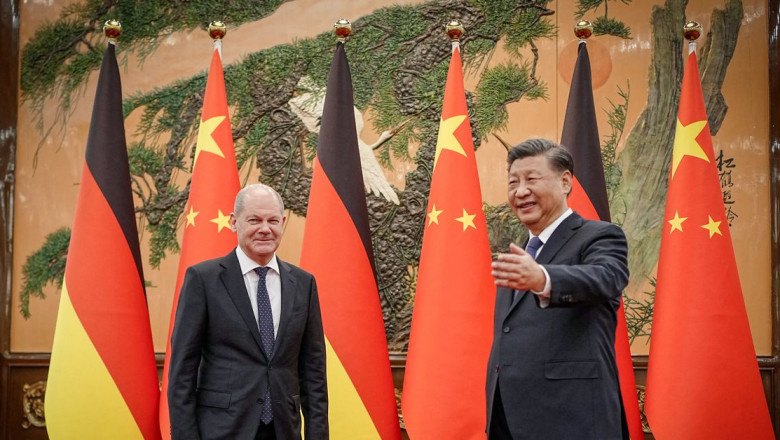
views
Xi tells Scholz China, Germany should step up cooperation in turbulent times
BEIJING, Nov 4 (Reuters) - Chinese President Xi Jinping on Friday touted the need for greater cooperation between China and Germany amid "times of change and turmoil" in a meeting with Chancellor Olaf Scholz, the first G7 leader to visit China since the pandemic began.
Scholz's one-day visit will test the waters between China and the West after years of mounting tensions, analysts say, with talks expected to touch on Russia's war on Ukraine, climate change and economic ties.
During their first face-to-face meeting since Scholz took office, held in the Great Hall of the People in the heart of Beijing, Xi said that as large nations with influence, China and Germany should work together all the more during "times of change and turmoil" for the sake of world peace, according to state broadcaster CCTV.
"At present, the international situation is complex and volatile," Xi was quoted as saying.
"As large and influential countries, in times of change and turmoil China and Germany should work together all the more, to make more contributions to world peace and development."
Scholz told Xi that it was good both leaders were meeting in person during tense times, and said Russia's invasion of Ukraine was creating problems for the rules-based global order, according to a Reuters reporter accompanying Scholz's delegation.
Scholz also said that the two will discuss issues related to Europe-China relations, the fight against climate change and global hunger, and how to develop China-Germany economic ties, as well as topics where both countries had different perspectives.
The two leaders had lunch in the Great Hall of the People's "Golden Room", where banquets are sometimes held for foreign heads of state.
Scholz and a delegation of German business leaders flying with him were administered COVID-19 tests upon landing in Beijing on Friday morning, with Chinese medical staff donning hazmat suits going into the plane to conduct the tests, according to the Reuters reporter accompanying the delegation.
Following a red carpet and honour guard reception, the delegation was moved from the airport to a state guesthouse to await the results of their COVID tests, which quickly came out as negative for Scholz, according to his press team.
[1/3] German Chancellor Olaf Scholz meets Chinese President Xi Jinping in Beijing, China November 4, 2022. Kay Nietfeld/Pool via REUTERS
123
Members of the German embassy in Beijing who come into contact with the delegation will have to undergo standard quarantine procedures -- seven days in a hotel followed by three days at home -- according to government sources.
China's strict zero-COVID policy and growing tensions with the West have made it unfeasible for leaders of major western powers to visit China, while Xi only resumed foreign trips in September.
Since the conclusion of the 20th National Congress of the ruling Communist Party last month, several foreign leaders have visited China and been given exemptions to the strict COVID curbs, being instead placed in "bubbles" designed to minimise the chances of COVID cases being imported into Beijing.
Scholz's visit is likely a welcome development for the Chinese leadership, who will be looking to shore up relations with the outside world. read more
"China, in the present domestic and international environments, requires his visit and whatever both sides would jointly declare in Beijing, especially shortly after the (Party) Congress," said Shi Yinhong, a professor of international relations at Renmin University in Beijing.
Amid historic inflation and a looming recession in Germany, Scholz will be looking to emphasise the need for continued cooperation with China. read more
Scholz, who is also expected to meet outgoing Premier Li Keqiang, pledged earlier this week to raise issues such as human rights, Taiwan and the difficulties German companies face accessing the Chinese market, during his meetings in Beijing, according to government sources.
In the run-up to the visit, there had been criticism of the visit within the EU and the German government coalition, mainly from the Green Party and the Liberals.
These tensions were brought to the fore by a deal last week whereby Chinese shipping giant Cosco received the green light from Berlin to obtain a stake in a Hamburg port terminal despite opposition from coalition partners.
China’s crucial role in key industries from shipbuilding to electric vehicles, along with the unprecedented economic headwinds facing Germany, meant Scholz needs cooperation with China more than his predecessor Angela Merkel ever did, said Wang Yiwei, Jean Monnet Chair Professor and director of the Centre for European studies at Renmin University.
"Merkel was also quite ideological (towards China) in the beginning but then she changed her tune. Scholz has changed his tune even faster, but he does not have as solid a domestic political standing as Merkel," said Wang.
Our Standards: The Thomson Reuters Trust Principles.











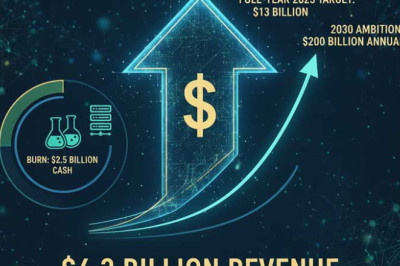



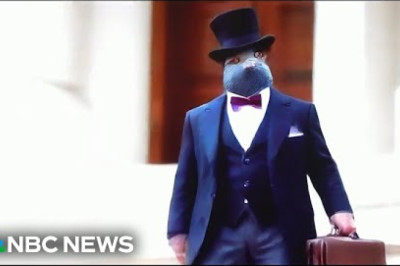

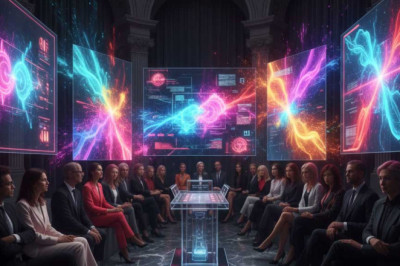

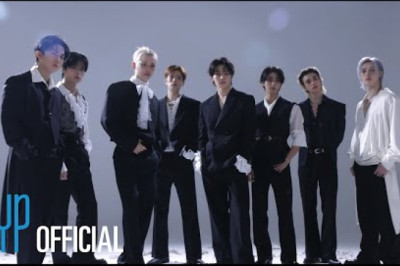

Comments
0 comment